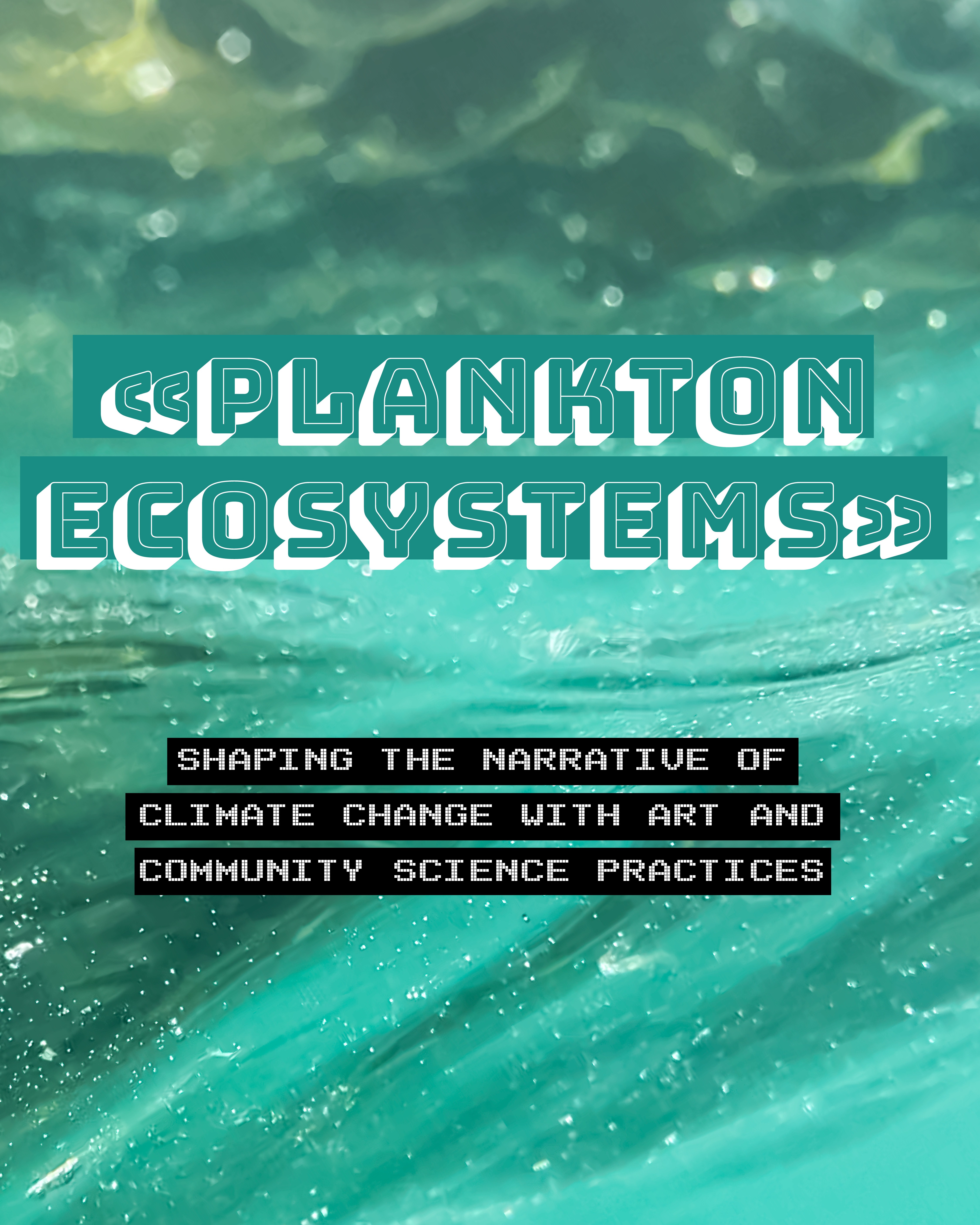ProHelvetia Synergies 2024:
The project «Plankton ecosystems» led by Riikka Tauriainen, PhD researcher at the EcoArtLab, was announced as one of 11 selected Projects for ProHelvetia – Synergies 2024.
Plankton Ecosystems is a participatory art-science programme focusing on community science technologies, collaborative art formats and experiential learning about marine ecology, plankton diversity and ocean literacy in collaboration with the European Research Institute (Turin) and Kunsthaus Pasquart (Biel). The programme is driven by a need to understand and mediate human impact on the marine ecosystem. It asks how the oceans are affected by human-induced shifts such as climate change.
By applying an artistic research-based approach, the programme will explore the intersections between art, science, and technology. It will ask how technology can enable encounters with plankton ecosystems, acting as an intermediary that enhances engagements between humans and the microscopic world of plankton. By building on a critical engagement with artistic research, Plankton Ecosystems will address the democratisation of knowledge production, considering science as a social practice, exploring justice and care, and how the accessibility of technology intersects with these considerations.
The programme will feature a study group and series of public events at the Kunsthaus Centre d’art Pasquart in Biel as well as presentations in various scientific and artistic contexts.
—> kickoff study group: May 4
—> public think tank: June 26, 19.00, Kunsthaus Centre d’art Pasquart
Picture: Riikka Tauriainen
The project «Plankton ecosystems» led by Riikka Tauriainen, PhD researcher at the EcoArtLab, was announced as one of 11 selected Projects for ProHelvetia – Synergies 2024.
«Plankton ecosystems»
– Shaping the narrative of climate change with art and community science practicesPlankton Ecosystems is a participatory art-science programme focusing on community science technologies, collaborative art formats and experiential learning about marine ecology, plankton diversity and ocean literacy in collaboration with the European Research Institute (Turin) and Kunsthaus Pasquart (Biel). The programme is driven by a need to understand and mediate human impact on the marine ecosystem. It asks how the oceans are affected by human-induced shifts such as climate change.
By applying an artistic research-based approach, the programme will explore the intersections between art, science, and technology. It will ask how technology can enable encounters with plankton ecosystems, acting as an intermediary that enhances engagements between humans and the microscopic world of plankton. By building on a critical engagement with artistic research, Plankton Ecosystems will address the democratisation of knowledge production, considering science as a social practice, exploring justice and care, and how the accessibility of technology intersects with these considerations.
The programme will feature a study group and series of public events at the Kunsthaus Centre d’art Pasquart in Biel as well as presentations in various scientific and artistic contexts.
—> kickoff study group: May 4
—> public think tank: June 26, 19.00, Kunsthaus Centre d’art Pasquart
Picture: Riikka Tauriainen


